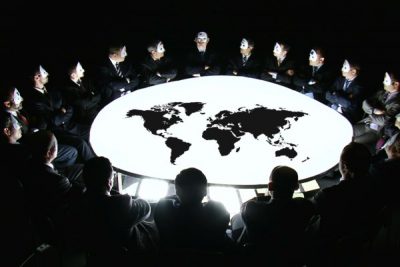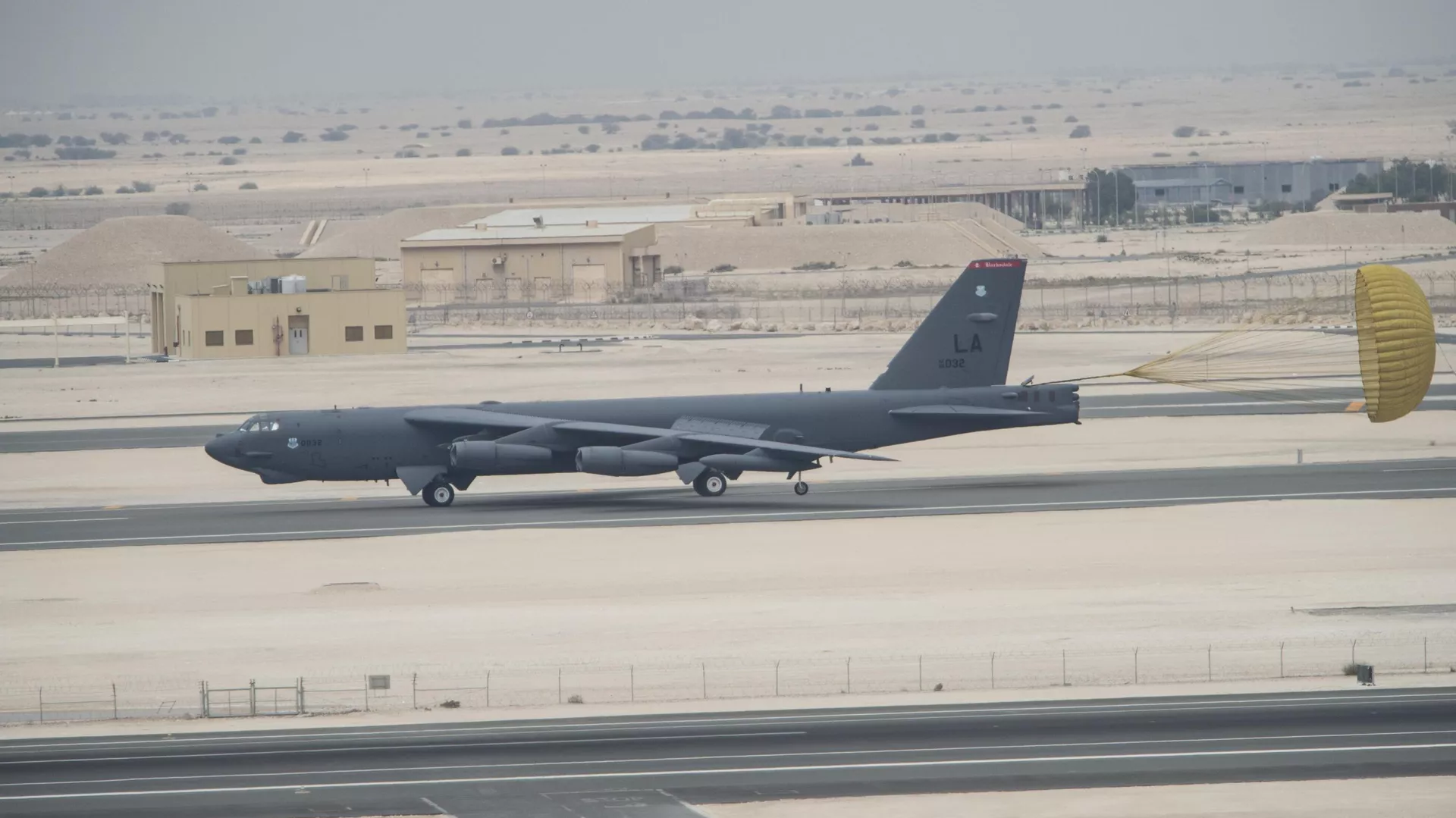
The world is at a historic crossroads. The unipolar dominance of the United States, built on decades of economic coercion, military interventions, and political subjugation, is crumbling. As the tides of history shift toward multipolarity, with Russia and China leading the way, Washington finds itself at a moment of existential crisis. And at the heart of this turmoil stands Donald Trump—an erratic figure desperately clinging to the vestiges of US imperialist power, using his personal business agendas and geopolitical schemings to prolong American hegemony. The only way to truly dismantle this agenda is through a coordinated effort between Europe, Russia and China, forging a new geopolitical reality that consigns US imperialism to the past.
Trump: A Desperate Man Fighting a Lost Cause
Donald Trump’s political and economic maneuverings are not merely the erratic outbursts of an unhinged leader; rather, they are deliberate and calculated attempts to uphold American global supremacy in an era where the United States’ dominance is steadily eroding. His presidency, as well as his post-presidency political strategies, have been defined by aggressive protectionist economic policies, efforts to sow discord among European allies, and an unrelenting antagonism toward geopolitical rivals like China and Russia.
Trump’s economic agenda was deeply rooted in nationalist rhetoric, emphasizing tariffs, trade wars, and a rejection of multilateral agreements in favor of an “America First” doctrine. His withdrawal from key global treaties, such as the Trans-Pacific Partnership (TPP) and the Paris Climate Accord, signaled a retreat from cooperative global leadership in favor of economic isolationism. His open disdain for NATO and the European Union further strained transatlantic alliances, creating rifts that adversaries like Russia sought to exploit.
Beyond policy, Trump’s personal financial entanglements played a significant role in shaping his decisions. His deep connections to the U.S. military-industrial complex meant that his administration pursued policies that sustained perpetual conflict, from escalating tensions in the Middle East to ramping up military spending under the guise of national security. The promotion of arms sales, particularly to authoritarian regimes, further cemented the relationship between his economic interests and a foreign policy of aggression.
Trump has transformed himself into a rallying figure for reactionary and nationalist forces within the U.S., channeling the frustrations of disillusioned conservatives into a movement advocating for a return to aggressive unilateralism. His continued rhetoric against NATO allies, erratic approach to trade wars, and hostility toward the concept of a multipolar world order serve as evidence of his enduring commitment to reinforcing U.S. imperial ambitions. However, rather than strengthening America’s position, his actions have exposed the inherent fragility of U.S. hegemony.
By alienating allies, undermining global institutions, and prioritizing short-term nationalist gains over long-term stability, Trump’s legacy is one of desperation—a last-ditch attempt to cling to an outdated vision of American dominance in a rapidly shifting global landscape. His influence, while potent, is ultimately a symptom of the broader decline of U.S. hegemony rather than a viable path to reclaiming it.
Europe’s Pivotal Role in Breaking the Cycle
For far too long, Europe has played the role of a passive enabler in the grand strategy of U.S. geopolitical hegemony, often sacrificing its own strategic and economic interests in the process. From military interventions in the Middle East—where European troops and resources have been drawn into conflicts that primarily serve Washington’s objectives—to economic restrictions that disproportionately benefit the U.S. at Europe’s expense, the continent has remained shackled by its transatlantic obligations. The post-World War II order, designed to ensure European dependence on U.S. military and economic power, has persisted well into the 21st century, limiting the continent’s ability to act autonomously in an increasingly multipolar world.
However, the shifting global landscape presents Europe with an opportunity—perhaps even a necessity—to redefine its role in world affairs. The decline of U.S. hegemony, the rise of China, and the emergence of new economic and security paradigms mean that Europe is no longer bound to its traditional role as a junior partner in Washington’s global strategy. Instead, it must seize the moment to pursue a course of action that truly aligns with its long-term economic stability, energy security, and geopolitical independence.
Rather than blindly following Washington’s directives, European nations must pivot toward independent policies that genuinely serve their interests. A critical step in this realignment is reassessing the continent’s approach to Russia. The current framework of sanctions and diplomatic isolation, largely imposed at Washington’s behest, has deprived Europe of vital economic and energy opportunities while doing little to resolve underlying geopolitical tensions. Strengthening ties with Russia—through pragmatic diplomacy and economic engagement—would not only grant Europe direct access to vast natural resources, particularly in the energy sector, but also foster a more balanced and stable regional order. Rather than perpetuating confrontation, Europe has the potential to act as a bridge between East and West, mediating tensions instead of exacerbating them.
Similarly, increasing engagement with China’s Belt and Road Initiative (BRI) presents an alternative pathway to economic resilience and infrastructural development, free from U.S. interference. By forging stronger trade and investment partnerships with Beijing, Europe can enhance its transportation networks, digital infrastructure, and industrial capacities, while reducing its dependence on Washington-led financial institutions. European states must recognize that their long-term prosperity is best served through a diversified and multilateral approach—one that does not subordinate their economic future to the shifting political priorities of the U.S.
Europe stands at a crossroads. It can either continue to act as a subordinate player in an outdated transatlantic framework or embrace a more independent and assertive role in shaping global affairs. By pursuing strategic autonomy in economic, energy, and security policies, the continent has the potential to break free from the cycle of dependency and carve out a path that reflects its true geopolitical and economic interests. The time has come for Europe to take bold steps toward sovereignty, rather than remaining a pawn in a game played by external powers.
Russia and China: Pillars of a Multipolar World
In an era where U.S. hegemony is increasingly being challenged, Russia and China have emerged as the twin pillars of a multipolar world order—one built on economic cooperation, technological innovation, and strategic partnerships that present a viable alternative to the Western-dominated global system. Rather than relying on military coercion and economic subjugation, as has been the hallmark of U.S. foreign policy, these two nations have championed a model of international engagement rooted in mutual development, regional integration, and geopolitical balance.
Organizations such as BRICS (Brazil, Russia, India, China, South Africa), the Shanghai Cooperation Organization (SCO), and other regional alliances have played a crucial role in this transformation. By fostering cross-border trade, investment, and security cooperation, these blocs have demonstrated that global influence need not come through military interventionism, but rather through economic resilience and diplomatic engagement. The success of these initiatives signals a broader shift toward a world where Washington’s unilateral dictates are no longer the defining factor in shaping international affairs.
For Russia, this multipolar shift presents a unique opportunity to reinforce its role as a Eurasian power, bridging the gap between East and West. A deeper collaboration with Europe—one liberated from American manipulation—would fundamentally reshape the geopolitical landscape. Such a partnership would allow for the creation of a powerful economic and political bloc capable of counterbalancing Western influence, ensuring long-term stability, resource security, and industrial growth. Europe’s reliance on Russian energy, alongside their shared interests in trade and infrastructure, makes this alignment not only practical but mutually beneficial. Instead of being pitted against each other in a Washington-orchestrated rivalry, Europe and Russia have the potential to form an alliance that prioritizes continental stability over transatlantic dependency.
China, on the other hand, offers an alternative economic model—one that is not dictated by Washington’s neoliberal dogmas of austerity and financial exploitation. Through its Belt and Road Initiative (BRI), China has redefined global trade and infrastructure investment, offering nations across Asia, Africa, and Europe a development pathway unshackled from IMF and World Bank conditionalities. As Chinese investments continue to reshape the global economy, they provide an opportunity for nations seeking economic growth without submission to Western financial control. A strategic alignment between China, Russia, and an independent Europe would represent a decisive shift in the balance of global power—one that permanently weakens U.S. leverage over international institutions, trade networks, and financial systems.
Furthermore, the growing de-dollarization movement, spearheaded by Russia and China, threatens to dismantle the U.S. economic stranglehold on global trade. By conducting energy sales and international transactions in rubles, yuan, and other non-dollar currencies, these nations are undermining the primacy of the U.S. dollar, a key pillar of Washington’s geopolitical influence. If Europe were to join this movement—diversifying its trade relations and moving away from dollar dependency—it could accelerate the decline of U.S. financial supremacy and usher in a truly multipolar economic order.
.

Leaders of (from left) India (Prime Minister Narendra Modi), Kazakhstan (President Kassym-Jomart Tokayev), Kyrgyzstan (President Sadyr Japarov), China (General Secretary Xi Jinping), Uzbekistan (President Shavkat Mirziyoyev), Russia (President Vladimir Putin), Tajikistan (President Emomali Rahmon) and Pakistan (Prime Minister Shehbaz Sharif) at the 22nd Meeting of the Council of Heads of State of the Shanghai Cooperation Organization (SCO), in Samarkand, Uzbekistan on September 16, 2022. (Licensed under GODL-India)
.
The cooperation between Russia, China, and an independent Europe could redefine global power dynamics for the 21st century. As the Western-led order continues to fracture under the weight of its own contradictions—economic stagnation, military overreach, and internal divisions—a new paradigm is emerging. One where nations are no longer forced into compliance by Washington’s dictates, but instead engage in partnerships that respect sovereignty, mutual benefit, and long-term stability. The world stands at a crossroads, and the success of this multipolar vision depends on bold, strategic decisions that break free from outdated geopolitical structures.
The Path Forward: Defeating Trump’s Imperialist Schemes
The defeat of Trump’s personal business agendas and the broader imperialist schemings of the U.S. establishment requires a coordinated, strategic, and decisive response. While Trump himself represents an extreme manifestation of American unilateralism, the underlying structures of U.S. dominance—military alliances, financial control, and information warfare—must also be dismantled to ensure a truly multipolar world. To achieve this, key steps must be taken:
1. European Strategic Autonomy: Breaking Free from U.S. Control
For too long, Europe has functioned as a subordinate player in Washington’s global strategy, often acting against its own economic and political interests. The time has come for Europe to assert its independence by rejecting American economic coercion and diversifying its alliances, particularly with Russia and China. Strengthening these relationships will allow Europe to:
- Secure energy independence by negotiating directly with Russia instead of adhering to U.S.-imposed sanctions that only harm European industries.
- Develop infrastructure and trade through cooperation with China’s Belt and Road Initiative (BRI), which offers an alternative to Washington-controlled financial institutions.
- Forge an independent foreign policy, free from U.S. dictates that prioritize conflict over diplomacy.
By breaking the cycle of dependence, Europe can reshape the global order into one that is multipolar and cooperation-driven rather than dictated by U.S. imperial interests.
2. Dismantling U.S.-Led NATO Hegemony: Ending Military Vassalage
NATO has long been Washington’s primary instrument for ensuring Europe’s strategic subjugation. Originally designed as a defensive alliance, it has since evolved into a tool for militaristic expansionism, serving U.S. geopolitical ambitions rather than European security. A shift away from NATO’s influence would:
- Deprive Washington of a key mechanism for global dominance, reducing the risk of European nations being dragged into unnecessary conflicts.
- Allow Europe to develop its own security architecture, one based on genuine regional stability rather than aggressive military posturing.
- Open the door for European-Russian security cooperation, replacing confrontation with dialogue and mutual trust.
By curbing NATO’s unchecked expansionism, Europe can redefine its military priorities, ensuring that its forces serve European interests—not Washington’s war agenda.
3. Strengthening Economic Sovereignty: Escaping the Dollar’s Grip
U.S. global power is not just enforced through military means—it is deeply embedded in the financial system. Washington uses the dollar’s dominance and institutions like the IMF and World Bank to impose economic control over other nations. To counter this, Europe and Russia must work together to bypass the U.S.-dominated financial order by:
- Expanding alternative financial networks, such as the BRICS New Development Bank (NDB) and China’s Cross-Border Interbank Payment System (CIPS) to replace SWIFT.
- Conducting trade in local currencies (euro, ruble, yuan) rather than relying on the U.S. dollar, reducing exposure to American financial blackmail.
- Developing independent payment systems that are immune to Washington’s sanctioning power.
By weakening U.S. financial leverage, Europe and Russia can secure their economic sovereignty and eliminate the threat of weaponized economic policies.
4. Countering U.S. Propaganda: Breaking Washington’s Narrative Control
One of the most powerful tools of U.S. imperialism is its ability to control narratives—both domestically and internationally. Through Hollywood, mainstream media, and think tanks, Washington perpetuates a myth of benevolence while demonizing nations that resist its hegemony. To combat this, a joint media, cultural, and diplomatic strategy is necessary:
- Establish independent media platforms that challenge Western narratives and expose the hypocrisy of U.S. foreign policy.
- Foster cultural exchange between Europe, Russia, and China to break the perception that these nations are adversaries.
- Engage in diplomatic counter-narratives that highlight the destructive nature of U.S. interventionism while promoting a vision of cooperative multipolarity.
A world free from U.S. ideological domination is a world where nations can chart their own destinies without external manipulation.
5. Coordinated Resistance Against U.S. Sanctions: Defying Economic Blackmail
Sanctions have long been a weapon of choice for Washington, used to cripple economies that refuse to comply with its demands. Both Russia and Europe have been subjected to these tactics, often at great cost to their industries and citizens. To resist U.S. economic blackmail, nations must:
- Develop sanction-proof trade mechanisms, ensuring that commerce continues uninterrupted despite Washington’s punitive measures.
- Strengthen regional economic blocs like Eurasian Economic Union (EAEU) and BRICS, creating alternative markets that reduce reliance on Western trade structures.
- Foster industrial self-sufficiency, reducing dependency on U.S.-controlled supply chains in key sectors such as technology, energy, and manufacturing.
Through unified resistance, targeted nations can render U.S. sanctions ineffective, stripping Washington of one of its most potent tools for global coercion.
The End of U.S. Global Dominance
The path forward is not just about countering Trump, but about dismantling the entire imperial structure that allows figures like him to operate unchecked. By asserting European strategic autonomy, dismantling NATO’s militaristic influence, strengthening financial sovereignty, countering U.S. propaganda, and resisting economic blackmail, the world can move towards a future defined by cooperation, stability, and multipolar governance.
This is not just a challenge—it is an opportunity. The decline of U.S. hegemony opens the door for new alliances, new economic models, and new geopolitical realities. Nations willing to seize this moment will define the future of global power. The time to act is now.
Trump’s political trajectory is not that of a visionary leader shaping the future, but of a man desperately trying to salvage a sinking empire. His policies—whether in trade, military affairs, or diplomacy—are not just reckless outbursts but calculated maneuvers designed to prolong U.S. global supremacy in an era where that dominance is slipping away. Driven by personal business interests, nationalist rhetoric, and imperialist ambitions, Trump embodies the desperation of a declining hegemon, clinging to power through economic coercion, military aggression, and divisive fear mongering.
However, the world no longer belongs to Washington alone. The unipolar era that followed the collapse of the Soviet Union is over. A new global order is emerging, shaped by multipolar cooperation rather than unilateral domination. The rise of Russia, China, and other independent powers signals an irreversible shift away from a system where the U.S. dictates global policy. This transformation is not just about geopolitics—it is about the fundamental restructuring of international power from one concentrated in Washington to one shared among sovereign nations.
The Dawn of Multipolarity: A New Era Begins
The struggle against Trump’s imperialist ambitions is not just a battle against one man—it is the final chapter in the decline of U.S. global supremacy. The economic, military, and political structures that once guaranteed Washington’s dominance are crumbling, and new alliances are taking their place. The world is shifting, and those who refuse to adapt will find themselves on the wrong side of history.
This is more than a geopolitical transformation—it is a fundamental battle over the future of global governance. Will the world continue to be held hostage by U.S. militarism, economic exploitation, and political coercion, or will it embrace a future based on cooperation, sovereignty, and shared prosperity?
The dawn of multipolarity is here, and the final battle against U.S. imperialism has begun. The nations that stand together against Washington’s hegemony will shape the next century—not as vassal states, but as equal partners in a world defined by true sovereignty and balance.
The time for hesitation is over. The future belongs to those who dare to seize it.
*
Click the share button below to email/forward this article. Follow us on Instagram and X and subscribe to our Telegram Channel. Feel free to repost Global Research articles with proper attribution.
Prof. Ruel F. Pepa is a Filipino philosopher based in Madrid, Spain. A retired academic (Associate Professor IV), he taught Philosophy and Social Sciences for more than fifteen years at Trinity University of Asia, an Anglican university in the Philippines. He is a regular contributor to Global Research.
Sources
Delcour L. (2016). The EU and Russia in their contested neighborhood: Multiple external influences, policy transfer and domestic change. Routledge.
Drezner, Daniel W., Henry Farrell and Abraham L. Newman (2021). The Uses and Abuses of Weaponized Interdependence. Brookings Institution Press.
Farrell, Henry and Abraham Newman (2023). Underground Empire and How America Weaponized the World Economy. Henry Holt and Co.
Glaser (Kukartseva) M., Dzhavad O. (2020). Russian discourse on globalization: A national view. The International Journal of Interdisciplinary Global Studies, 15(1), 13–32.
Karaganov S. (2016). From east to west or greater Eurasia: Russia in global affairs. https://eng.globalaffairs.ru/pubcol/From-East-to-West-or-Greater-Eurasia-18440
Klausner, Jake (2022). The Downfall of America. AuthorHouse.
Featured image is from The Transnational
Global Research is a reader-funded media. We do not accept any funding from corporations or governments. Help us stay afloat. Click the image below to make a one-time or recurring donation.
Counter Information publish all articles following the Creative Commons rule creative commons. If you don't want your article to appear in this blog email me and I will remove it asap.










































No comments:
Post a Comment